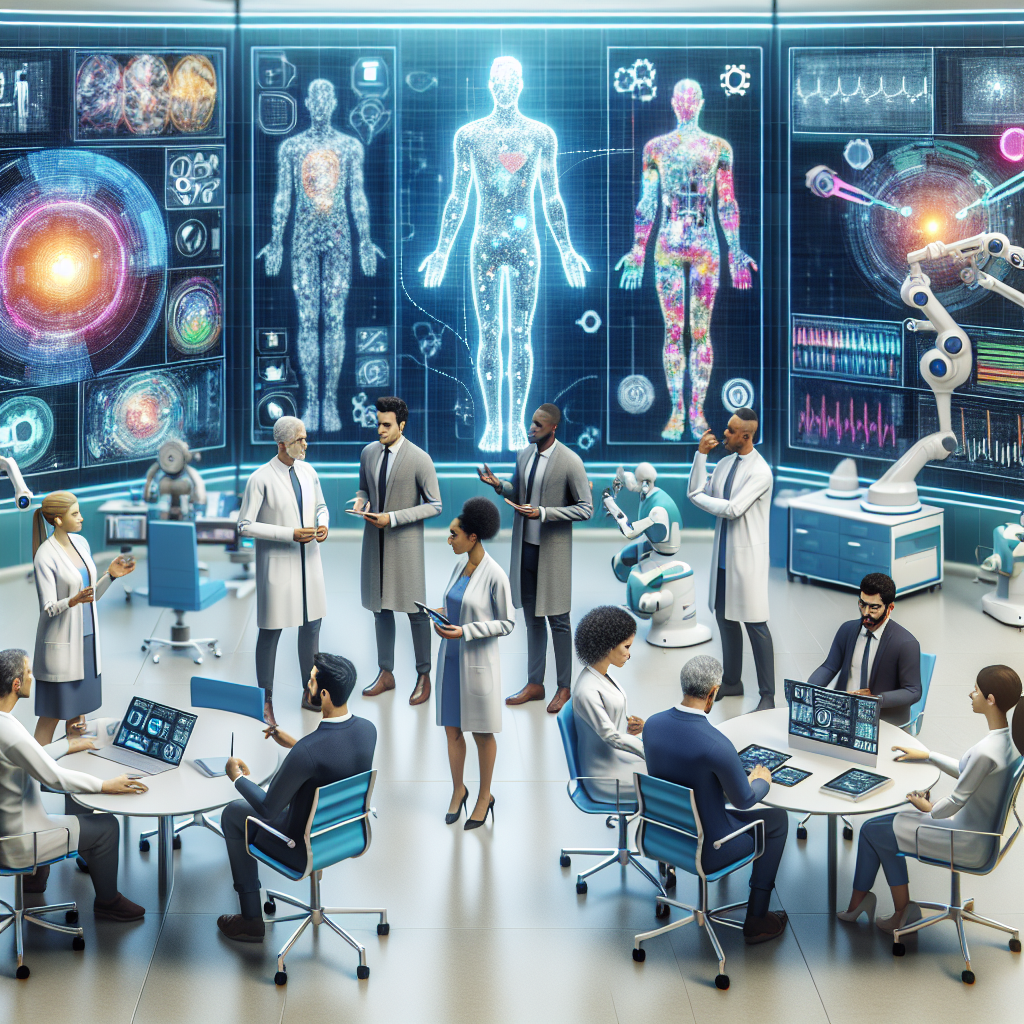Artificial Intelligence (AI) has become increasingly prevalent in the healthcare industry, revolutionizing the way research is conducted and improving patient outcomes. AI solutions have the potential to analyze vast amounts of data quickly and accurately, leading to more efficient research processes and better treatment options for patients. In this article, we will explore the role of AI solutions in healthcare research and how they are shaping the future of medicine.
AI in Healthcare Research
AI has the ability to process and analyze large datasets at a speed that far exceeds human capabilities. This has led to significant advancements in healthcare research, particularly in areas such as drug discovery, personalized medicine, and disease diagnosis. AI algorithms can sift through millions of data points to identify patterns and correlations that would be impossible for humans to detect.
One of the key ways AI is being used in healthcare research is in drug discovery. Traditional drug discovery processes can be time-consuming and costly, with many potential treatments failing to make it to market. AI algorithms can predict the effectiveness of new drugs based on existing data, speeding up the research process and increasing the likelihood of success.
AI is also being used to develop personalized treatment plans for patients. By analyzing a patient’s genetic makeup, medical history, and lifestyle factors, AI algorithms can recommend the most effective treatment options for each individual. This personalized approach to medicine has the potential to improve patient outcomes and reduce healthcare costs.
In addition to drug discovery and personalized medicine, AI is also being used to diagnose and predict diseases. AI algorithms can analyze medical imaging data, such as X-rays and MRIs, to detect abnormalities and diagnose conditions with a high degree of accuracy. This can help doctors make faster and more accurate diagnoses, leading to better treatment outcomes for patients.
Challenges and Limitations
While AI has the potential to revolutionize healthcare research, there are also challenges and limitations that need to be addressed. One of the main challenges is the lack of high-quality data. AI algorithms rely on large datasets to make accurate predictions, but healthcare data can be fragmented and of varying quality. Improving data quality and standardizing data collection processes are essential for the success of AI solutions in healthcare research.
Another challenge is the potential for bias in AI algorithms. AI systems are only as good as the data they are trained on, and if that data is biased, the algorithms can produce biased results. Ensuring that AI algorithms are trained on diverse and representative datasets is crucial to avoid bias in healthcare research.
There are also concerns around the ethical implications of AI in healthcare research. For example, who owns the data that AI algorithms analyze, and how can patient privacy be protected? These are important questions that need to be addressed as AI solutions become more prevalent in healthcare research.
FAQs
Q: How is AI being used in drug discovery?
A: AI algorithms can predict the effectiveness of new drugs based on existing data, speeding up the research process and increasing the likelihood of success.
Q: How is AI being used to develop personalized treatment plans?
A: AI algorithms analyze a patient’s genetic makeup, medical history, and lifestyle factors to recommend the most effective treatment options for each individual.
Q: What are the challenges of using AI in healthcare research?
A: Challenges include the lack of high-quality data, potential bias in algorithms, and ethical considerations around data ownership and patient privacy.
Q: How can bias in AI algorithms be prevented?
A: Ensuring that AI algorithms are trained on diverse and representative datasets can help prevent bias in healthcare research.
In conclusion, AI solutions are playing an increasingly important role in healthcare research, offering new opportunities to improve patient outcomes and advance medical knowledge. While there are challenges and limitations to be addressed, the potential benefits of AI in healthcare research are vast. By addressing these challenges and ensuring that AI algorithms are used ethically and responsibly, we can harness the power of AI to transform the future of medicine.

